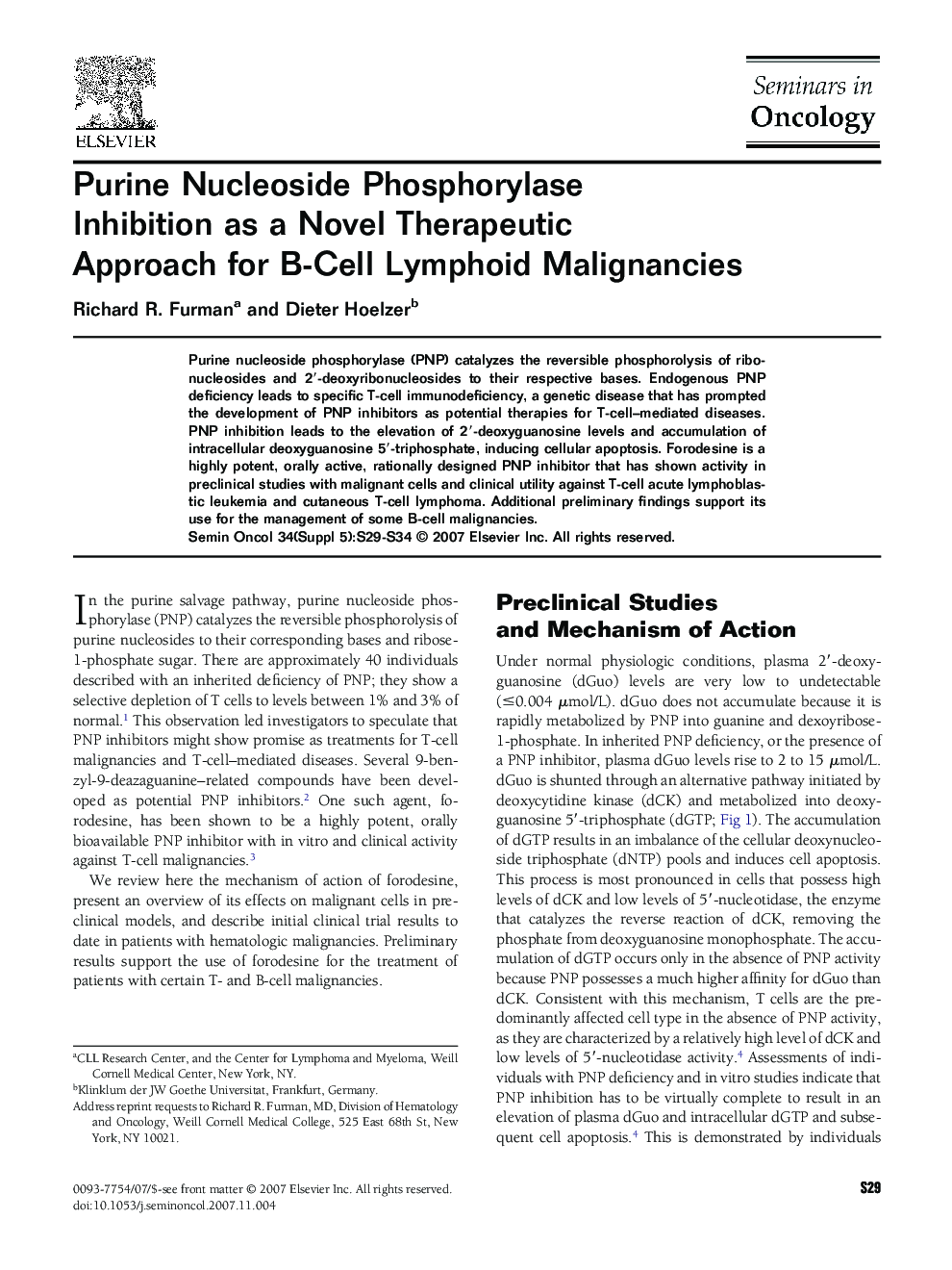| Article ID | Journal | Published Year | Pages | File Type |
|---|---|---|---|---|
| 2163086 | Seminars in Oncology | 2007 | 6 Pages |
Abstract
Purine nucleoside phosphorylase (PNP) catalyzes the reversible phosphorolysis of ribonucleosides and 2â²-deoxyribonucleosides to their respective bases. Endogenous PNP deficiency leads to specific T-cell immunodeficiency, a genetic disease that has prompted the development of PNP inhibitors as potential therapies for T-cell-mediated diseases. PNP inhibition leads to the elevation of 2â²-deoxyguanosine levels and accumulation of intracellular deoxyguanosine 5â²-triphosphate, inducing cellular apoptosis. Forodesine is a highly potent, orally active, rationally designed PNP inhibitor that has shown activity in preclinical studies with malignant cells and clinical utility against T-cell acute lymphoblastic leukemia and cutaneous T-cell lymphoma. Additional preliminary findings support its use for the management of some B-cell malignancies.
Related Topics
Life Sciences
Biochemistry, Genetics and Molecular Biology
Cancer Research
Authors
Richard R. Furman, Dieter Hoelzer,
